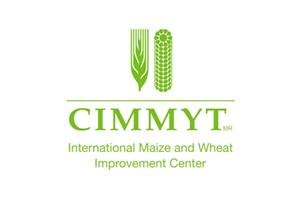Food Security Resilience Project in Ethiopia
T he Global Center on Adaptation (GCA) is working with the World Bank Group to build the climate resilience of food systems in Ethiopia under the Ethiopia Food Systems Resilience Program.
The objective of this seven-year $600 million investment project funded by the World Bank is to increase the resilience of Ethiopia’s food systems and the country’s preparedness for food insecurity. The project is active in nine regional states and two city administrations in Ethiopia, and focuses on cereals, pulses, horticulture and coffee, oil seeds, and livestock value chains. The project improves the enabling environment for food system resilience, develops the food market, ensures that small-scale irrigation development and management is resilient, and promotes transformative agricultural services and innovation systems.
In collaboration with the International Maize and Wheat Improvement Center (CIMMYT), GCA is providing technical assistance and support for project implementation in priority agricultural value chains to complement and climate-proof the program investments. GCA’s support includes focusing on deploying digital adaptation tools to address climate risk.

Investment Value Influenced by GCA
US$600 million

Beneficiaries
4 million households in Ethiopia

Implementation Period
2023-2029
Partner


GCA’s Added Value
GCA’s support includes the following activities:
- Mapping 14 priority value chains identified by the World Bank Group and Ethiopia to assess climate risks for smallholders in crop/livestock sub-sectors
- Assessing opportunities and constraints related to deploying digital adaptation tools to address issues identified in the value chains.
- Further developing and updating the Ethiopian Digital Agro-climate Advisory Platform and testing the extended platform for priority use cases
- Providing recommendations for policy and investment to scale up
- Conducting an ex-ante analysis of the required investment to deploy the services
Expected Outcomes
With GCA’s support in creating an enabling environment for scaling climate-smart solutions, the FSRP will have more effective and sustainable achievement of the following outcomes:
- 2.4 million farmers adopt resilience-enhancing technologies and practices (30% female)
- 15% reduction in food-insecure people in program-targeted areas
- 20% increase in yields of targeted crops in targeted households.
- 25% increase in volume of agricultural products sold.
Knowledge Products
These knowledge products were produced through this project:
- Climate change risks to the coffee value chain in Ethiopia: Findings, implications and adaptation options
- Climate change risks to the soybean value chain in Ethiopia: Findings, implications and adaptation options
- Climate change risks to the wheat value chain in Ethiopia: Findings, implications and adaptation options
- Climate change risks to the cattle value chain in Ethiopia: Findings, implications and adaptation options
- Climate change risks to the maize value chain in Ethiopia: Findings, implications and adaptation options